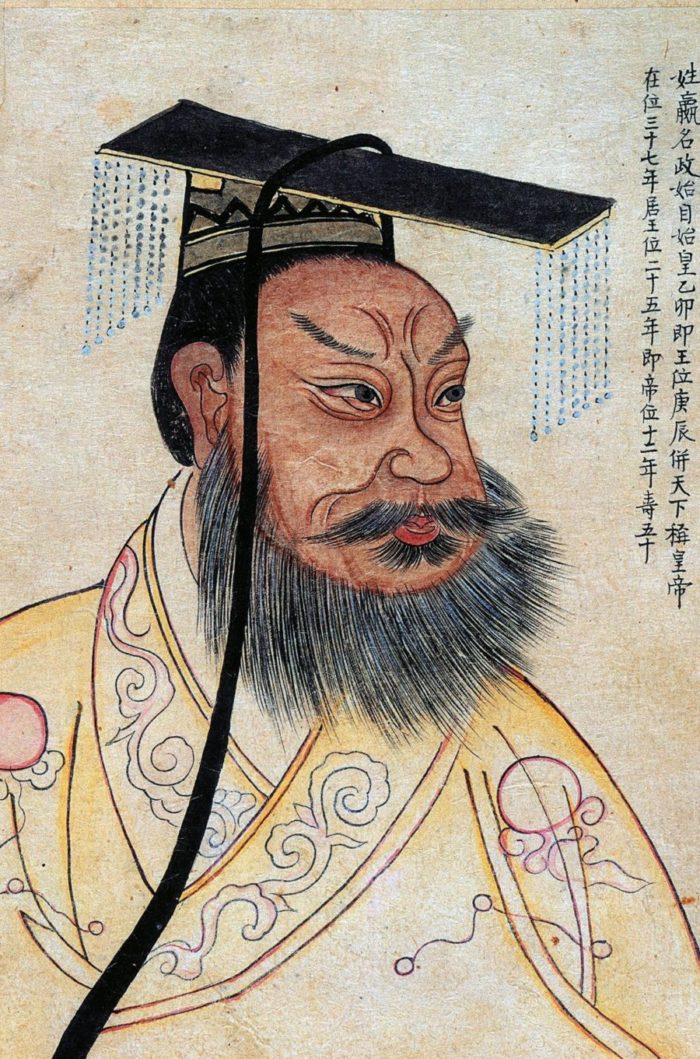Qin Shi Huang and the Qin dynasty is famous throughout the world. From this dynasty, we have the original Great Wall of China. It is so huge it is visible from outer space. From this emperor, we also have the rich and detailed archeological find known as the Terra Cotta Warriors.
Against Confucianism
Qin believed in the “legalism” philosophy, and rejected Confucian thought. He embraced conquest and centralization of government. Qin wanted bureaucracies that were rigorously checked and required to maintain written documentation. He did not agree with Confucian philosophy. It accepted wise and virtuous ministers trusted to act as they saw fit in the interests of all. According to their moral code, they elevated social harmony and family interests.
China 221 BC.
When Qin Shi Huang came to power, he immediately decided to stamp out the many different philosophies and schools of thought that were part of traditional Chinese culture. Advised by his minister Li Si, he ordered all histories created in conquered warring states destroyed / burned. These included the Shi Jing (poems and hymns from 11 BC to 7 BC- used by Confucius). He banned the Classic of History (collection of commands and speeches and official acts over a period of time in antiquity). He burned writings of the hundred schools of philosophy (6th century BC to the time. These included many different philosophies and thoughts about life and order and intellectual pursuits.). Qin did permit certain scholars and academics to retain a copy for their collections, but they were not to read them or quote from them or use them to compare the present to the past.

The Punishment
All others in possession of such books/ scrolls were required to take their collections of these and other specified books to be burned. When 460 Confucian scholars refused, Qin Shi Huang had the scholars buried alive in a “purge of dissent.” Their books /scrolls were burned as were all others according to the fiat.
The Perseverance of Thought
Qin Shi Huang stamped China in a monumental and legendary way. His dynasty did not, however, succeed in the long run in eliminating Confucian philosophy, which is still influential and studied throughout the world.

